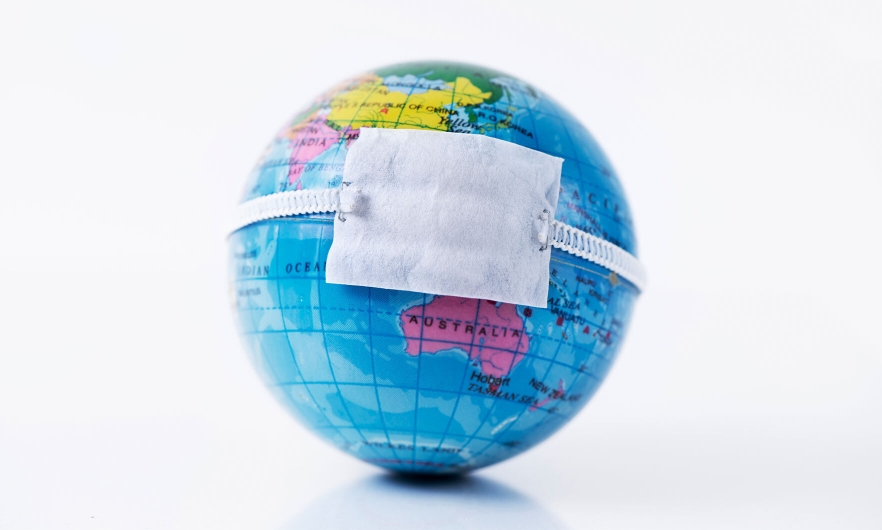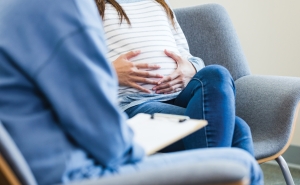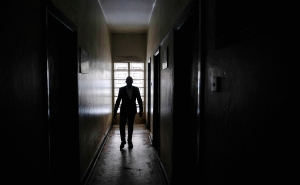The Movement for a Global Pandemic Treaty

If countries had coordinated surveillance, reporting, and response (including distribution of everything from PPE to vaccines) during the COVID-19 pandemic, many lives would have been saved. What would it take to ensure that kind of global cooperation?
Some experts say a pandemic treaty may be the answer to future pandemic preparedness.
In this Q&A, adapted from the June 22 episode of Public Health On Call, Josh Sharfstein, MD, talks with preparedness and response expert Lucia Mullen, MPH, of the Center for Health Security, about the growing call to support such cooperation through a pandemic treaty. They also talk about the mis- and disinformation that have emerged already, such as myths that a treaty could override countries’ rights or give the World Health Organization sweeping power.
Public Health On Call
This article was adapted from the June 22 episode of Public Health On Call Podcast.
What is the pandemic treaty?
The pandemic treaty came up in 2021 as a call to recognize the fact that the current international treaties or conventions we have in place haven't been enough to stop large-scale pandemics and mount effective preparedness and response. This is largely in reference to the International Health Regulations, which is the main treaty the World Health Organization uses to ensure countries are providing them with information, as well as making sure that they're staying prepared in the light of emerging disease outbreaks.
The IHR was a set of agreements on what countries should be saying about new, fast-spreading diseases that could turn into pandemics, but you’re saying it didn't work so well?
Yes. The International Health Regulations or IHR called on member states to effectively prepare and do capacity building so they can mount effective preparedness, prevention, and response to disease outbreaks. The problem is there's no enforcement of those treaties. A large part of the IHR is its reporting mechanism. It asks countries to provide WHO and therefore the rest of the world with clear information about what's going on in their country, like having cases of an unusual disease.
When countries don't comply and don't report these measures, we have delays in response. This is something we saw early on in COVID.
So, having another treaty is an attempt to strengthen that gap, as well as other global coordination measures that have been weakened over time, in order to have a better global response to these massive issues, rather than every individual country's responses that are often unequal.
What are the other areas in which the current approach to global collaboration has fallen short?
Sharing vaccines and other medical countermeasures, but one of the good things that came out of COVID was scientific research sharing, particularly on genome sequences. There's often a delay in spreading information and ensuring that surveillance measures across the world are operating at a high capacity, so this is a huge gap that needs to be addressed.
Vaccines have been a major point of disparity between high-income and low- and middle-income countries. Making sure that there's a more equitable response and coverage would go a long way in mitigating future outbreaks.
There is also a huge gap between the recommendations that WHO put forth and what’s actually happening. It will give a list of recommendations that countries should do either to prepare or to respond and effectively control the outbreak, but there is no enforcement to implement these.
What is this pandemic treaty about and how is it getting organized?
A lot of that actually remains up in the air. So far, we know that this pandemic treaty is a call that's been recognized to address these gaps and create a new convention or international treaty. At the end of last year, at a special session of the World Health Assembly, it was recognized that this pandemic treaty should be further discussed, and that's why they created an intergovernmental negotiating body.
This is made up of countries that are putting forth ideas of what the pandemic treaty would be, what powers it may hold, and what it shouldn't be. We're hoping to get some further clarity later this summer when the first draft should be released.
What parameters for the treaty would be top of mind for you?
The reporting mechanism is the most important thing, as we said early on in COVID. We know there were massive delays in reporting, so making sure that there's very clear and recognized responsibilities that must be upheld by the member states would go a long way in making sure that the rest of the world is forewarned.
I also think we should place higher importance on WHO’s recommendations and have the member states themselves acknowledge the priority of those recommendations.
In the very early stages of 2020, we didn't quite know what [COVID] was, how it was spread, or how big it would become. It was very much still in China. There were a lot of calls [from WHO] for other countries to start preparing themselves, yet most of those calls were ignored. If we could highlight the importance of [those recommendations] and make sure there are mechanisms in place to prepare for the eventuality of a pandemic, it would put us in a better spot going forward.
You can call for people to do the reporting and call for countries to do their part, but if they don't do it, what's the consequence?
This is where a lot of misunderstanding is happening with the pandemic treaty. WHO will never have the power to go in and make sweeping decisions that are sovereign-based. This is always going to come from the countries themselves.
What we need to recognize is that the countries have let the IHR become weak. They aren't responding to the IHR or upholding its regulations and rights as they did when it was originally ratified.
A new pandemic treaty isn't going to have any implementing force to it. The power is still going to be with the countries, but we need the countries to recognize that in order for it to be effective, they must uphold it themselves.
We've seen in the pandemic that countries are very focused on doing what is perceived as in that country's interests, not so much for the greater good. If that's how people are going to act in a pandemic and there's not a clear enforcement mechanism, why pursue a treaty at all?
We've seen going at it alone hasn't been successful, and many times in this pandemic, it has prolonged or worsened surges. Countries are going to have their own priorities and rights coming into the treaty, but if they can recognize that it serves their own country’s best interest to support other countries, we can hopefully get a more globally coordinated and effective response.
The topic of global action on a pandemic seems like it could lend itself to inaccurate claims. Have you seen that?
There's been quite a bit of that—especially during the World Health Assembly—and a movement to stop the treaty. What I think is the largest misperception is that passing this treaty gives countries’ or sovereigns’ rights to an international body. The rights will always stay with the country themselves.
WHO is not gaining extra rights. It won’t be able to move into countries and make unilateral decisions just because this treaty would be in place.
I also think people don't realize how long this process takes and that it must be agreed on by the countries. The first revision of the IHR took 10 years, and then another two years to decide which draft would be put into place. Even if we shorten [that timeline], we're still looking at years before this pandemic treaty would be put into place, and it's only going to be put into place if countries agree with what is written in it. It's not going to be something that WHO just decides and implements itself.
Joshua Sharfstein, MD, is the vice dean for Public Health Practice and Community Engagement and a professor in Health Policy and Management at the Johns Hopkins Bloomberg School of Public Health. He is also the director of the Bloomberg American Health Initiative and a host of the Public Health On Call podcast.




